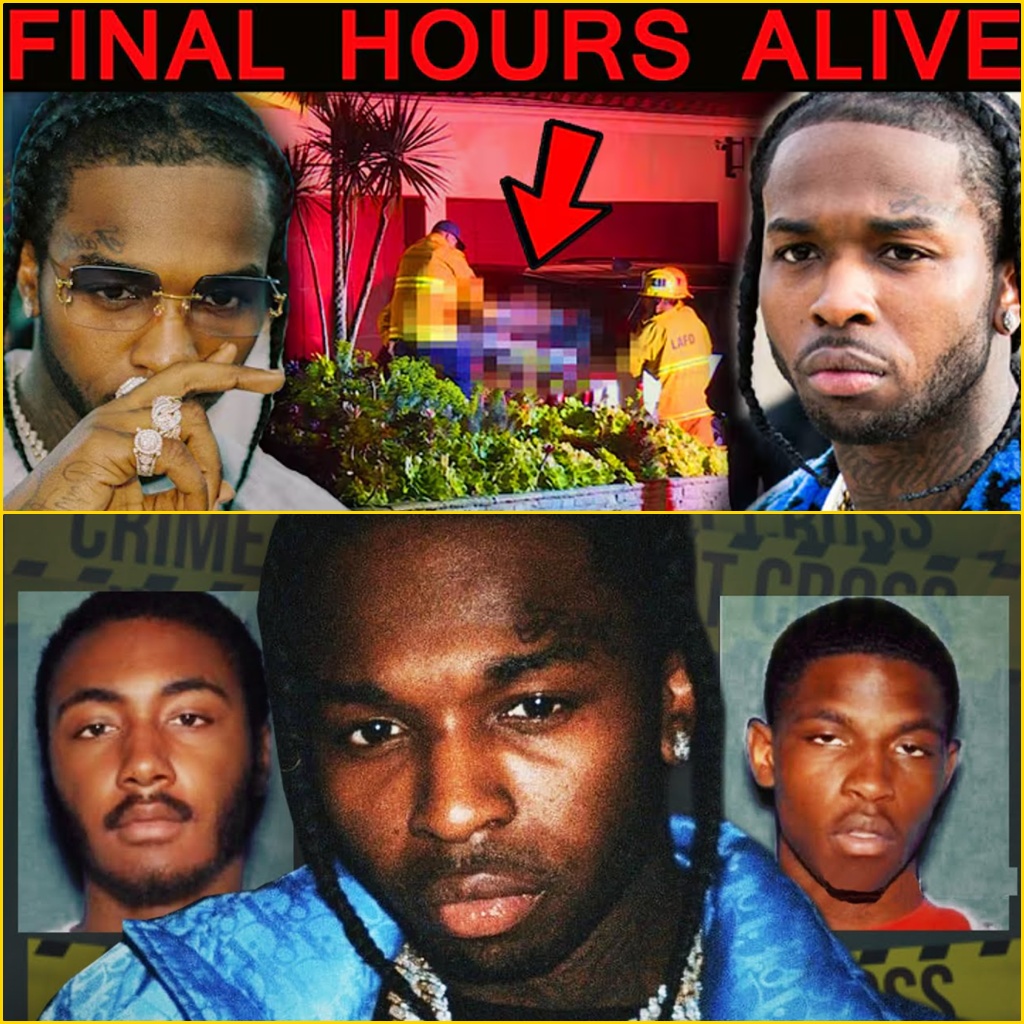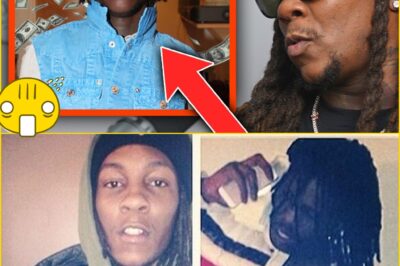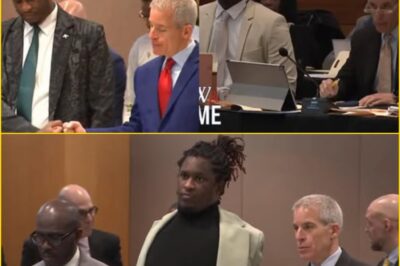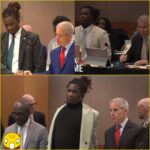On February 17th, 2020, Bashar Barakah Jackson — known to the world as Pop Smoke — was riding the wave of unstoppable momentum. His voice, his sound, his swagger had reshaped the New York drill scene, and his energy was pure fire. That night, he was with fellow Brooklyn rapper Fivio Foreign, celebrating, planning, dreaming. He was just 20 years old — young, fearless, and untouchable.
The next day, Pop Smoke boarded a flight to Los Angeles. It was supposed to be a short trip — photo shoots, meetings, and a rented Hollywood Hills home to chill in between work. But what he didn’t know was that his dreams were about to collide with tragedy.

In the early hours of February 19th, the unthinkable happened. Four intruders broke into the house he was renting. Within minutes, shots rang out. Pop Smoke was rushed to the hospital, but it was too late. The kid from Canarsie, who had just begun to conquer the world, was gone.
For fans, it was like the air had been sucked out of hip-hop. Pop wasn’t just another rapper — he was a movement. His growling voice, his signature flow, his charisma — everything about him felt larger than life. “Dior,” “Welcome to the Party,” and “The Woo” weren’t just songs; they were street anthems that defined a generation hungry for authenticity.
But behind the confidence was a young man still learning how to navigate fame. He had gone from obscurity to superstardom almost overnight. With success came pressure, jealousy, and danger — and Pop was still figuring out who he could trust.
Police later said that the killers had found Pop’s address through an Instagram story — a tragic mistake that revealed just how fragile fame can be in the digital age. One photo, one slip, and his location was exposed.
In the aftermath, fans flooded social media with grief and disbelief. Fellow artists — from Nicki Minaj to Travis Scott — mourned publicly, calling him a “real one” and “a king taken too soon.” His posthumous album Shoot for the Stars, Aim for the Moon became both a triumph and a heartbreak — proof of what he could have become.
Five years later, Pop Smoke’s influence still echoes through hip-hop. His sound reshaped New York, inspired countless young rappers, and bridged the gap between the streets and the mainstream.
But when fans listen now — when that deep, menacing voice hits the beat — there’s always that sting of loss. Because we know how it ended. We know that just as he was taking off, the world took him down.
Pop Smoke’s story is a brutal reminder: fame is fragile, life is fleeting, and legends don’t always get to grow old.
News
THE MISSING CHAIN MYSTERY — Why a Throwback Photo of THF Bayzoo Wearing Chief Keef’s Iconic Chain Has the Internet in Sh0ck
A throwback photo has just set social media on fire — and it’s got the streets talking like it’s 2013…
DCI Barnaby Returns to the K-lling Fields of England — Midsomer Mur-ders’ Comeback Unleashes Dark Secrets, De-adly Lies, and the Bl00diest Season Yet!
The peaceful English countryside is about to be drenched in blood once again — because Midsomer Murders is back, and…
THE FUNK ALMOST K!LLED ME — Bootsy Collins’ Sh0cking Confession at 73 Shakes the Music World
For decades, Bootsy Collins has been the undisputed architect of funk — a cosmic force of basslines, glitter, and groove….
YOUNG THUG EXPOSED: How Leaked Jail Calls Destr0yed the ‘Realest Gangster’ Image Forever
Exactly one year ago today — October 31st, 2024 — hip-hop witnessed what felt like a resurrection. Just a week…
Ben Affleck and Matt Damon Ignite Netflix With a Ruthless Crime Thriller That’s Already Being Called “The Next Heat” — A Blistering Dive Into Brotherhood, Betrayal, and Bl00d
Ben Affleck and Matt Damon are back — but not as the heroes audiences remember. In Netflix’s newest crime epic,…
Netflix’s Most Powerful True Story of the Year: The 13-Year-Old Girl Who Defied the Darkness of War — And Changed Everything
In a year filled with gripping stories, Netflix has unveiled what critics are already calling “its most haunting masterpiece yet.”…
End of content
No more pages to load












